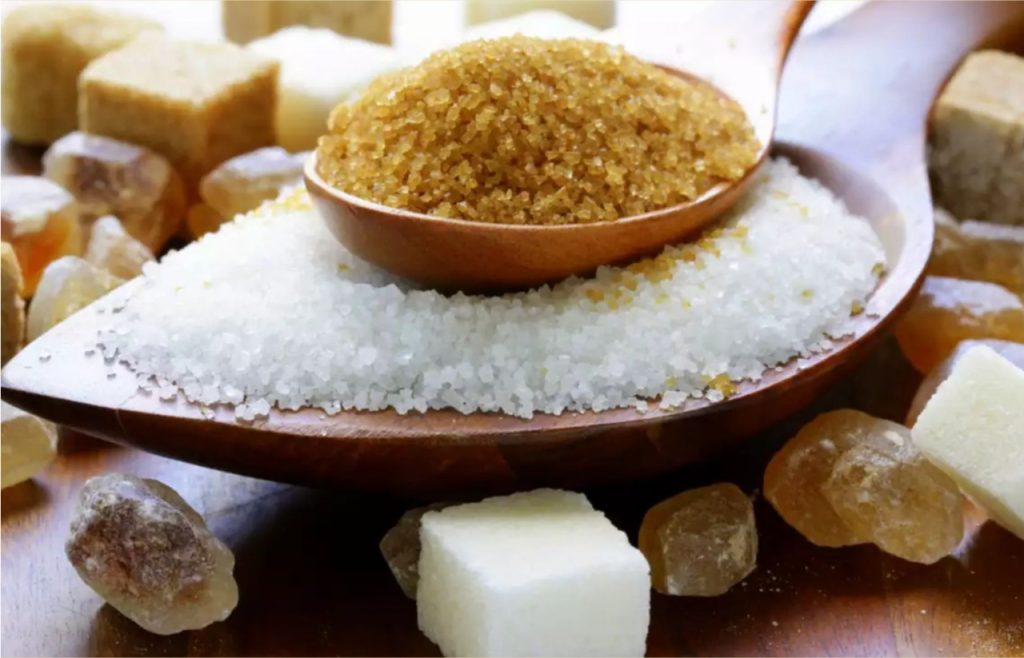
Is sugar good or bad for your health? To some extent, sugars aren’t good for your health but it depends on the level of consumption too. Sugars prompt your appetite, increase tooth decay and enhance the risk of getting coronary heart diseases, diabetes Type 2 and obesity. Natural sugars are low in calories as compared to artificial ones that contribute to calorie count. Added sugars lead to increased body weight and those who want to lose weight should cut off these sugars from their diet.
Sugars contain two types of carbohydrates; simple carbohydrates and complex carbohydrates. Simple carbohydrates are made up of only one type of sugar termed as Monosaccharides (glucose, sucrose and galactose) or two types of sugar that are termed as Disaccharides.
What is Glycemic index?
Glycemic index has a scale that ranges from 0 to 100 that shows how fast and how much blood sugar level elevates after consuming food. Foods that have a high glycemic index, are absorbed fast like white bread, cereals, potatoes etc. While foods that have low glycemic index are absorbed slowly and slow down the rising blood like vegetables, fruits, dairy etc.
Meanwhile, the pancreas produces insulin, which enables glucose to be absorbed by all of the body cells. Pancreas produces more insulin in response to the amount of glucose you consume. If you consume more calories than your body demands for energy, insulin will shift the excess to your fat cells. Insulin resistance is also linked to being overweight and eating a high-sugar diet.
No doubt! Sugary foods are a weakness of everyone. Everybody craves for sweet items. Luckily, a variety of sugar replacements and sweeteners, both natural and artificial are available to help you cut down your table sugar intake. It is particularly essential for elderly persons to limit their sugar intake.
Healthiest sugar substitutes
A variety of healthiest sugar substitutes are present in the market that can easily fulfill your sugar dietary cravings. There’s also a debatable thing whether sugar substitutes are a healthy choice or not. It totally depends on the type of sugar substitute and how much you take it.
Sugars substitutes are also categorized into many types:
Artificial sweeteners
Synthetic sugar substitutes are stronger sweeteners, only a small amount is required to improve the flavor of food. Most of the artificial sweeteners have no calories and may aid in weight loss, while the long-term effects of artificial sweeteners on weight loss are still unknown. Because artificial sweeteners don’t elevate blood sugar, they may be helpful for diabetic patients. If you have diabetes, you should see your doctor before taking any sugar alternative. FDA (Food and Drug Administration) approved artificial sweeteners should only be used.
Example: Aspartame, Saccharin, Sucralose etc.
- Aspartame: Aspartame is a low-calorie sugar alternative that is widely used. It’s made up of two amino acids called aspartic acid and phenylalanine. Aspartame is 200 times sweeter than sugar. Thousands of processed foods and beverages like Yogurt, frozen desserts, pudding, dry dessert mixes, chewing gum, and soft beverages all contain aspartame. While baking, aspartame should not be used as a sugar replacement. When heated, it loses its sweetness. Aspartame should not be consumed by those who have the uncommon disorder phenylketonuria (PKU). Because digestion of phenylalanine (one of the amino acids included in aspartame) becomes unable by their bodies.
- Saccharin: Saccharin is a sugar substitute with a reduced calorie content that was originally developed in 1879. It is 200 to 700 times sweeter than sugar. When consuming saccharin, some people may experience an aftertaste. Saccharin is frequently used with another sugar alternative in processed goods. Some drugs and vitamins also contain saccharin. When baking, saccharin can be used as a sugar alternative. FDA has authorized saccharin as a food ingredient.
Natural sweeteners
Natural sweeteners may attract you more than table sugar in terms of flavor. It’s necessary to keep in mind that even natural sweeteners can be processed and refined, so it’s better to go for unrefined wherever possible. They also have a high-calorie content. When ingested natural sweeteners in excess like table sugar, can cause health problems such as tooth decay, weight gain, and poor nutrition. The key to health is moderation.
Example: Maple syrup, honey, date, stevia, coconut sugar etc.
- Maple syrup: Maple syrup contains a lot of antioxidants and minerals like calcium, potassium, iron, zinc, and manganese. Maple syrup, like some of the other natural sweeteners, is high in calories and should be used wisely. Maple syrup is used to enhance the flavor of sweet and savory dishes in a variety of ways. Use it in savory dishes like veggies, poultry, salmon, or salad dressings, or in healthier morning options like oatmeal, coffee, or plain yogurt. When baking, you can also use maple syrup, just make sure to lower the amount of liquid in the recipe.
- Dates: Dates are a good source of fiber, minerals, and vitamins. You can enhance the nutritional content of your meal by using date paste as a sweetener. Dates in smoothies, baked items, sauces, marinades, and salad dressings enhance their flavor. Because date paste is sweeter than sugar. In a blender, you can manufacture a date paste or sugar substitute at home. Take 3/4 cup of water, 1/2 teaspoon of vanilla essence, and approximately 1 cup of warm, pitted dates.
- Honey: Honey contains more nutrients, such as antioxidants, minerals, and vitamins than table sugar. It also enhances digestive health and honey is easier to digest as compared to table sugar. Honey is made up of two sugars, it breakdowns into glucose and fructose, if consumed it in excess, thus it can cause serious health problems. Honey is sweeter than sugar, you may need to use less of it. Already honey contains enough water, so you’ll have to use less liquid when substituting honey in baked products.
- Stevia: Stevia is a sugar alternative derived from the stevia plant’s leaves. Stevia is approximately 200 times sweeter than table sugar, but it’s free of calories. But not everyone likes its flavor. Some people think stevia feels like menthol, while others claim it tastes unpleasant. Use stevia in morning coffee or sprinkled over your porridge. Stevia is 100 % natural, it is extracted from two flower leaves named as asters and
Sugar alcohol
Sugar alcohols do not trigger tooth decay or cavities like sugar. Sugar alcohol can also help people to lose weight and manage their diabetes. This is due to the fact that sugar alcohols are not entirely absorbed by the body. On the other hand, Sugar alcohol ingested in excess can cause digestive issues like diarrhea and bloating.
Example: mannitol, sorbitol, xylitol, lactitol, isomalt, maltitol and hydrogenated starch hydrolysates
Name Tags: healthy sugar, natural sweeteners, low calorie sugar, glycemic index, sugar alternatives, digestive issues
About author
Areena Asiff has done graduation in Food Sciences & Technology from UMT, she holds international certification in Nutrition & Health and Food Safety. Currently, she is working as food technologist at Diet Studio. She writes on different topics related to Health, Food Safety, Nutrition & other science related topics. She can be reached at areenaasif6659@gmail.com.










